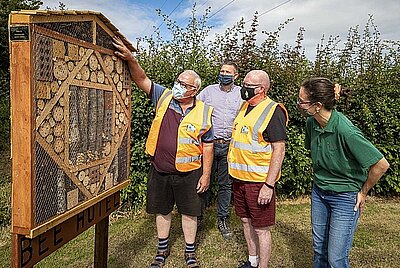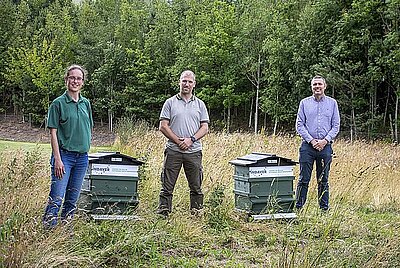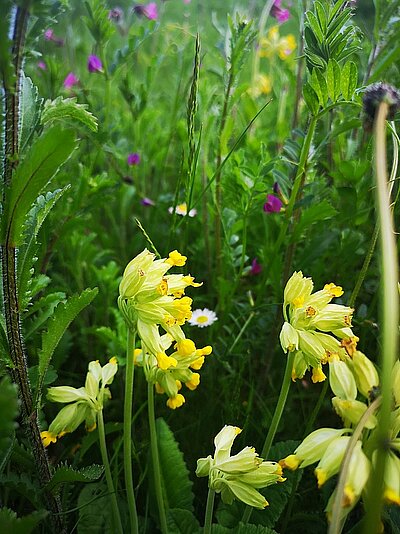The All-Ireland pollinator plan states that 'Irish pollinators are in decline. The problem is serious and requires immediate attention to ensure the sustainability of our food production, avoid additional economic impact on the agricultural sector, and protect the health of the environment.'
In order to aid pollination in our local area of Carranstown, Duleek, Indaver have recently installed bee hotels and bee hives. The two bee hotels were built by Tullyallen Men’s Shed and have been installed for wild solitary bees. They will lay their eggs in the holes in the wood, where baby bees will hatch and hibernate and then emerge as adults next spring.
The two bee hives were provided by and will be managed by BeeGreen Ireland and contain the native Irish honey bee.
Onsite at the Meath Waste-to-Energy Facility, there is a wildflower meadow, meadow grasslands, and additional treelines planted with a mixture of native broadleaf trees and Scots Pine. More than 40 different species of native flowering plants have been identified in these areas, which provide an abundant and diverse source of food and habitats for essential pollinating insects. Both wild bees and honey bees are essential pollinating insects. The rich assemblage of flowers provides a diverse source of pollen and nectar to the bees and other pollinating insects throughout the year; and, once pollinated, they provide fruits, nuts, seeds and berries for birds and other mammals.
If you would like any further information on pollinators/bees, please see the All-ireland Pollinator Plan.


